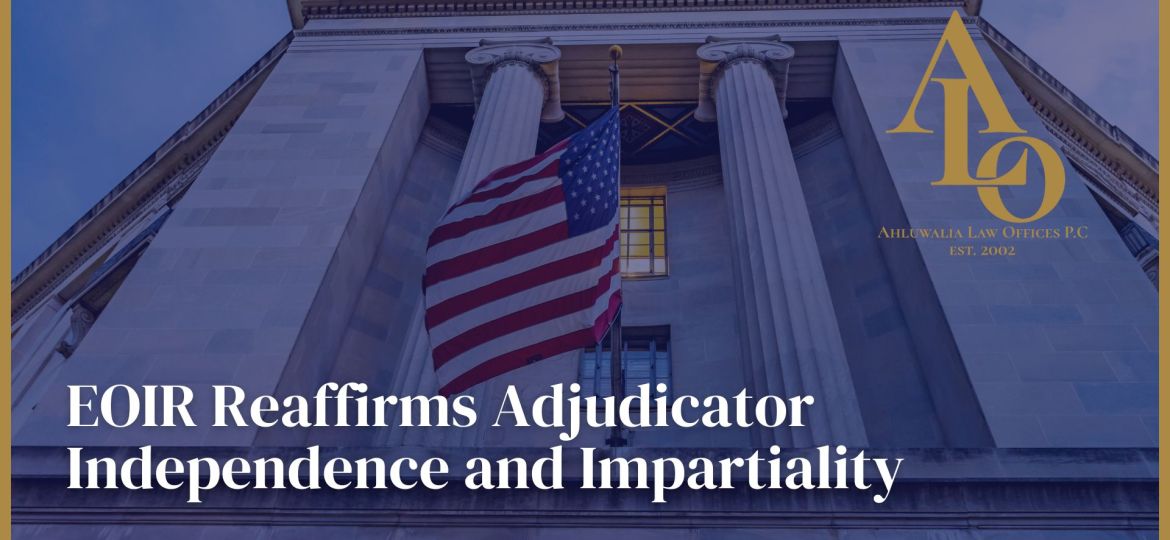
On August 22, 2025, the Executive Office for Immigration Review (EOIR) issued Policy Memorandum 25-42, reaffirming the principle that all immigration adjudicators must exercise independent judgment and impartiality in their decision-making. This guidance formally cancels and replaces PM 21-15, which had caused confusion due to conflicting practices between 2021 and 2025.
What the Guidance Establishes
- Independent Judgment: Immigration Judges and adjudicators are required to decide cases solely on the record before them and the applicable law. Neither public opinion, political pressure, nor internal directives may sway outcomes.
- Attorney General Oversight: While adjudicators retain independence, their authority remains bounded by statute and precedent. The Attorney General retains supervisory power under the Immigration and Nationality Act (INA) and may issue binding interpretations.
- No Favoritism: Adjudicators must remain neutral, avoiding preferential treatment or advocacy for either party. Their role is not to seek equitable outcomes outside the law, but to apply the Immigration and Nationality Act, regulations, and precedential case law.
- Corrective Measures: Adjudicators who abandon neutrality or show systemic bias may face review. However, impartiality cannot be measured solely by case outcomes.
Why This Matters
For foreign nationals, visa holders, and investors in the U.S., this policy ensures that immigration proceedings are conducted fairly and free from undue influence. While adjudicators may interpret precedent, they must remain faithful to statutory law and binding rulings. Importantly, EOIR’s reaffirmation signals efforts to restore integrity and trust in immigration courts after several years of inconsistent application.
Key Takeaway
This update reinforces that while adjudicators must act independently, their discretion is framed by law, binding precedent, and oversight from the Attorney General. For individuals navigating U.S. immigration, it underscores the importance of presenting strong legal arguments supported by the record—knowing that cases will be judged on law and fact, not external pressures.


